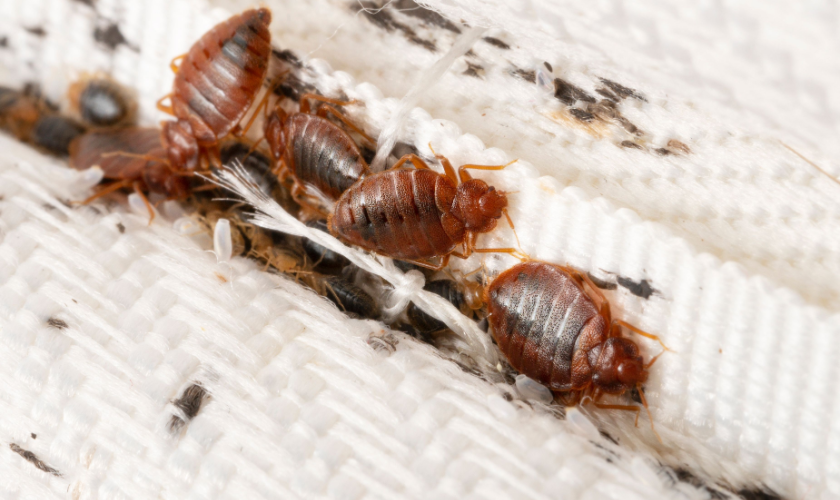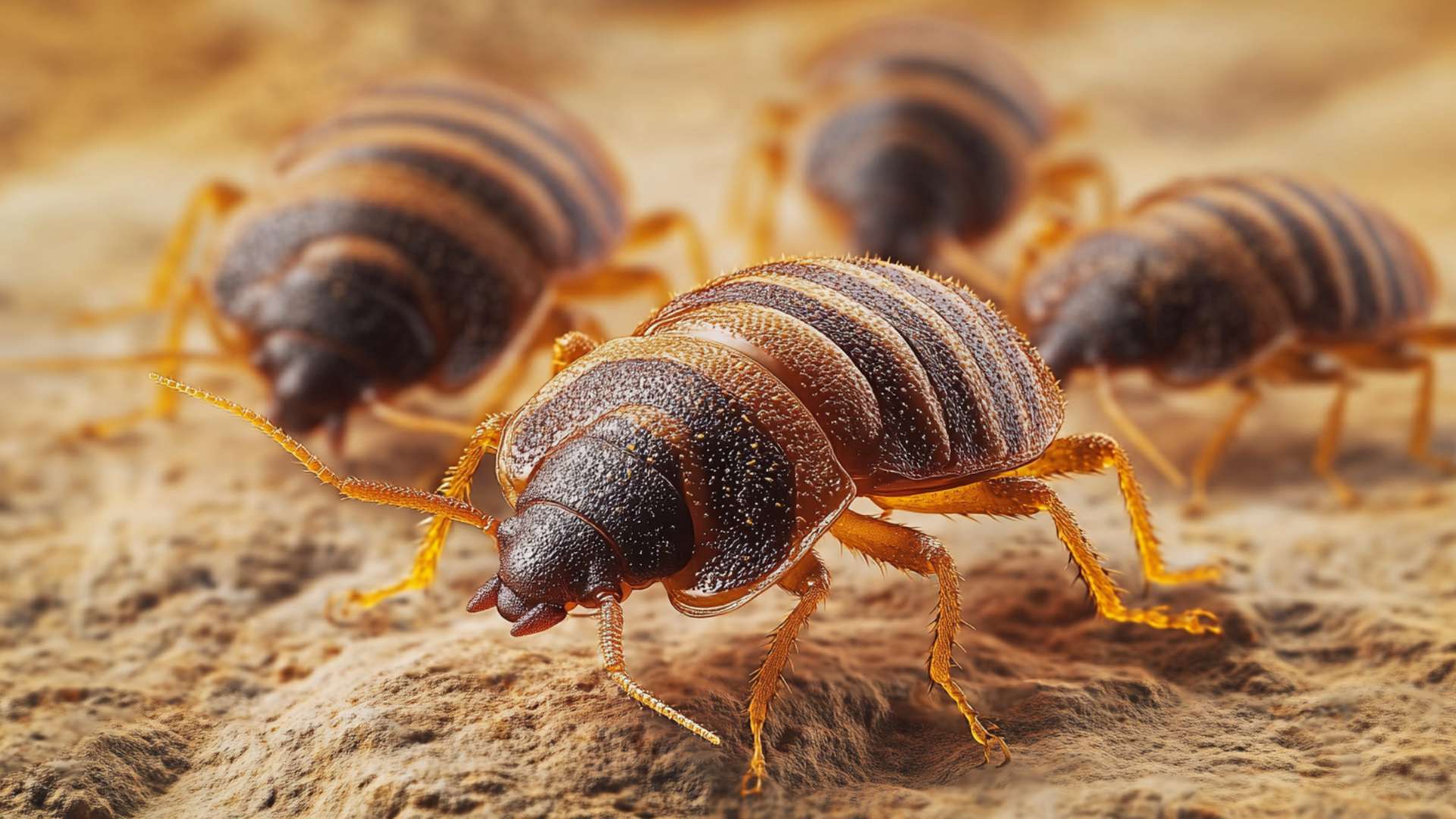Trusted Kings Pest Control Cincinnati OH: Professional Services
Wiki Article
A Failure of the Different Sorts Of Bug Control Solutions
In the world of bug control, a multitude of methods exist to battle the existence and resolve of undesirable animals. From the traditional use of chemical pesticides to a lot more ingenious biological control solutions, each approach offers distinctive benefits and constraints. As we browse via the varied landscape of bug control services, comprehending the complexities of each method comes to be critical in figuring out the most efficient program of action. Keep tuned as we discover the nuanced world of bug control strategies and discover just how each type plays a distinct role in securing our atmospheres.Chemical Pesticides
Chemical chemicals are typically used in pest control to successfully eliminate a wide variety of bugs and various other pests. These chemicals function by targeting the nerve system of the parasites, disrupting their typical features, and ultimately causing their demise. Using chemical pesticides has actually been a staple in the pest control market for years due to their effectiveness and fast outcomes.
Nonetheless, it is vital to use chemical pesticides with caution due to their possible damaging effects on the setting and non-target varieties. Incorrect application or overuse of these pesticides can result in pollution, injury to helpful insects, and resistance growth in bug populations. Consequently, it is vital to comply with security standards and guidelines when using chemical pesticides for bug control.
Biological Control Techniques
Considering the prospective ecological impacts and risks connected with chemical pesticides, biological control methods offer a more lasting strategy to managing parasite populaces. Organic control includes the usage of all-natural enemies, such as microorganisms, bloodsuckers, and killers, to reduce bug populaces. This approach is typically extra targeted, affecting just the specific pest species while reducing damage to useful insects, humans, and the environment.

One benefit of biological control is its long-lasting effectiveness. As soon as established, all-natural enemies can assist regulate pest populations continually without the need for duplicated applications of chemicals. Additionally, organic control is frequently extra affordable and can help in reducing chemical resistance in parasite populations gradually. Overall, biological control methods use a environmentally friendly and lasting remedy to pest management.

Mechanical Pest Control
Mechanical insect control involves the physical control or removal of insects to manage their populaces efficiently. This technique is frequently employed read here together with various other bug control techniques for extensive pest management. One common example of mechanical parasite control is utilizing catches to capture rodents or insects. These traps can be established in strategic areas where pests are recognized to dwell, helping to reduce their numbers.
An additional mechanical technique is the use of obstacles such as nets, displays, or fences to block bugs from entering certain areas. By literally stopping insects from accessing an area, the possibility of problems or damage can be significantly minimized. In addition, manual techniques like handpicking pests off frameworks or plants can be effective for smaller-scale infestations.
While mechanical insect control approaches can be labor-intensive, they offer a non-chemical option that can be eco-friendly and sustainable. By targeting insects directly, mechanical control strategies can aid keep insect populaces in check without depending on chemicals.
Natural Remedies
Using all-natural solutions for pest control provides a green and sustainable strategy to managing insect populations without turning to chemical treatments. All-natural solutions entail making use of materials stemmed from plants, minerals, or other naturally occurring resources to hinder or eliminate pests. Growing particular natural herbs like basil, mint, or lavender around your property can repel insects due to their solid aromas. Diatomaceous planet, a powder made from fossilized algae, can be utilized to fight pests like ants, cockroaches, and bed pests by dehydrating their exoskeletons.In addition, necessary oils such as tea tree oil or neem oil have insecticidal buildings that can effectively regulate insects while being risk-free for the atmosphere. Another all-natural remedy is presenting useful insects like ladybugs or hoping mantises to your garden to exploit dangerous insects. By including these natural remedies right into bug management methods, individuals can minimize their reliance on synthetic chemicals and advertise a healthier, a lot more balanced environment.
Integrated Pest Administration
Integrated Pest Administration (IPM) is a detailed technique that combines various approaches to successfully regulate pest populations while lessening dangers to human health and the environment. IPM includes the integration of multiple parasite control techniques such as biological control, habitat manipulation, modification of cultural practices, and using resistant plant ranges. By making use of a combination of these strategies, IPM intends to minimize reliance on chemical pesticides, which can have negative influence on communities and human health.One key aspect of IPM is the emphasis on prevention. By carrying out actions to avoid insect invasions prior to they take place, such as keeping correct cleanliness and securing access factors, the demand for responsive pest control steps is lessened. Tracking and routine examinations play an essential role in IPM, permitting very early discovery of bug problems and timely intervention.
Conclusion
In conclusion, the numerous kinds of bug control solutions supply a variety of alternatives for successfully managing parasite infestations. Organic control methods make use of top article natural killers to control bugs. Integrated Bug Management incorporates multiple approaches for a holistic strategy to pest control.Chemical pesticides are generally used in bug control to effectively get rid of a wide variety of pests and other bugs.Mechanical parasite control involves the physical adjustment or removal of parasites to manage their populaces effectively (Kings pest control cincinnati oh).Utilizing redirected here natural treatments for parasite control offers a green and sustainable strategy to managing pest populations without resorting to chemical interventions.Integrated Bug Monitoring (IPM) is a comprehensive approach that combines different strategies to effectively control pest populations while reducing dangers to human health and wellness and the environment.In final thought, the different types of insect control options use a variety of choices for successfully managing insect infestations
Report this wiki page